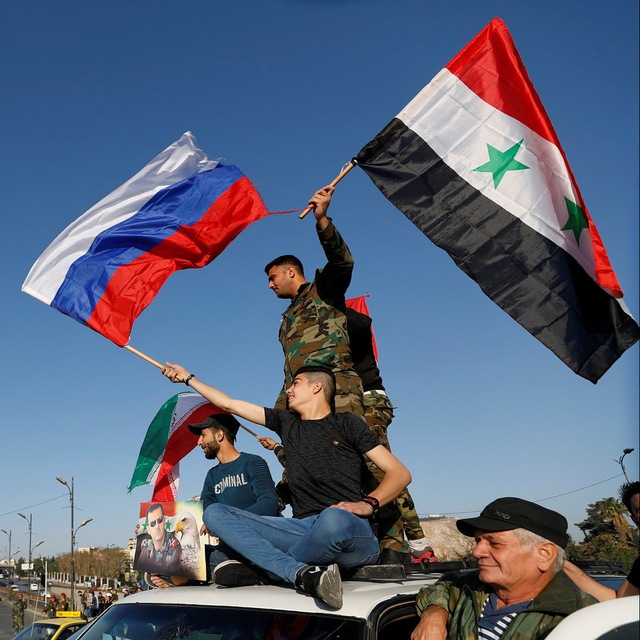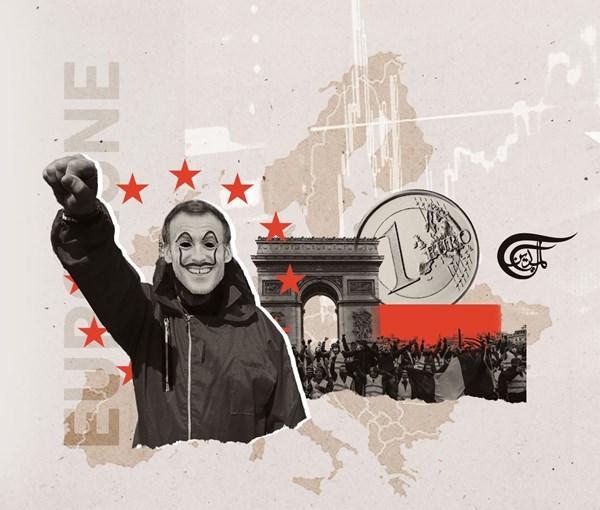Excerpted with emphasis:
"In a 2014 report titled “The EU’s Energy Security Made Urgent by the Crimean Crisis,” the EU Parliament outlined the challenges that lay ahead of enforcing sanctions on Russia. An interesting aspect of this report conveys salient aspects of the bloc’s decision-making. By contrasting both the short-term and long-term implications of anti-Russian sanctions on the bloc’s economy, we may discern the rationale for the EU’s decision: in the short-term, the EU would be faced with “several obstacles” linked to the construction of new import terminals, the conversion of electric plants to other energy sources, the substitution of Russian gas imports with those from Norway, Algeria, and Qatar which would result in external shocks and “recession effects” to the EU economy, while in the long-term, the sanctions promise to strengthen Europe’s security, forging trade alliances with “new countries,” increasing renewable energy production, and other means of reducing energy dependency to Russia.
The point remains that Europe restructures power balances by forcing countries into submission and drawing future resources for cheap costs. The principle governing the EU’s decision-making is that the temporary erosion of European welfare – the current security of Europe’s working classes – is meant to strengthen the bloc’s autonomy and boost European working class and capital security in the long run. The European working class continues to partner with capital since its colonial wars and it benefits from the power generated imperialist dividends. That rationale is the very same one being applied in the context of the Ukrainian conflict – that the temporary contraction of the Eurozone is meant to enhance Europe’s security and economy in the long run.
… Knowing well the consequences that bear upon its economy, namely the decoupling from Russian gas and Russian investments, it is instinctive to assume that the EU has beaten a new record for the most irrational decision-making. But arithmetic imposed on processes is misleading and considering the dynamic picture, more power garnered by Europe will resituate it at the helm of the international order. Once in power, Europe dictates to the world its terms of trade. When we consider the social aspects involved in the price formation of commodities – which in this particular context involves the sale of Russian gas for cheap prices, a decapitated Russia will sell its future gas for prices even lower than they were prior to the outbreak of the Ukraine conflict.
This is important to consider because price formation is relative to the structures of power, which emanates from the resultant of social or power relations. Market powers provide the social context in which people come to relate to one another, and thus, how the terms of exchange are legitimized. As a matter of fact, the reason why Russian gas became so cheap after the Soviet Union collapsed is owed to the ideological defeat of the Soviet ideology. The establishment of the petrodollar system in 1973 was a turning point in history which saw the US consolidate the dollar as the dominant global reserve currency, causing a severe drop in the Soviet Union’s income and affecting the bloc’s ability to sustain itself as a autonomous economy.
The history of Europe provides context to how the European working class relates to the capitalists of Europe. To a large extent, the working class of Europe has always been the soldiers of the Empire. By committing crimes against humanity, colonizing peoples, pillaging their resources, and carrying out genocides and ethnocides of immeasurable scale, the European working class reproduces itself by war just as capital does.
The EU has done well at washing the blood off its hands from centuries of looting and pillaging the South as it continues to vaunt its image of moral and cultural superiority and has done so by masterfully subjugating the discourse on human rights to serve its own ends. So much of Europe’s wealth was in fact generated by the relation of looting the South. The European working class makes a living out of killing by increasing its power and partnership with capital. But the presence of a strong Russia has always posed a threat to Western interests, especially as it holds sway over Eurasia.
With the ideological defeat of the Soviet Union and the ongoing expansion of NATO, this pattern continues to take hold in the 21st century. But with the US bearing a leadership role within the alliance, many come to view the EU as being dragged into a war that is not theirs. Whether the US is exerting pressure on the EU or not, it is a certainty that whatever decisions being made are meant to safeguard the rules-based order – an order characterized by the primacy of Western culture and civilization over that of the South, which in turn pays dividends to the European working class itself.
Simply put, it would be far off the mark to assume that the US bears full responsibility for a conflict that the EU has supposedly nothing to do with. Not only the Western alliance is all one and the same, but the imperialism-based order renders war as the only viable option against an autonomous Russia. Rivaling the primacy of the rules-based order is rivaling the terms of exchange as defined by the West, and rivaling the terms of exchange is rivaling US-EU military superiority.
The same applies in the context of waging a trade war with China. Reports have claimed that the US has been pressuring the EU to decouple from China. But neither the EU nor the US has thus far dared to initiate such a move. It is an indisputable certainty that doing so would wreak havoc on Western businesses that rely on Chinese supply chains and manufacturing power. But it is precisely this overreliance on China that the West is aiming to overturn.
Nevertheless, with resistance enacted by Russia and other global players, the prospects for a world where development would break off from waste accumulation – the production sphere of global industries that drive the destruction of the Global South – seem to be coming further in sight."


